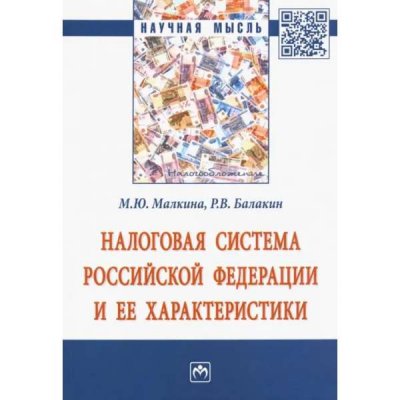The tax system of the Russian Federation and its characteristics
The monograph discusses theoretical, methodological and practical approaches to assessing the properties of tax systems. The theories and concepts of taxes are studied, as well as empirical approaches to modeling the relationship between the parameters of the tax and economic systems of the country. On the example of the tax system of the Russian Federation in 2006-2017, such properties of tax systems as profitability, uniformity of taxation and risk were studied in dynamics. A methodology for assessing the unevenness of taxation is proposed, on the basis of which the contribution of individual taxes and industries to interregional differences in the level of tax profitability in the Russian Federation is determined. A methodology for assessing and decomposing the risk of the tax system using the portfolio approach of G.Markowitz and W.Sharpe is proposed. The application of this methodology made it possible to determine the contribution of different taxes, industries and regions to the risk of the tax system of the country and its regions, as well as to conduct a comparative assessment of the risk of the tax systems of the subjects of the Russian Federation in the distribution of tax revenues between the three levels of the budget system. The paper also proposed and tested a method of factor analysis of tax revenues in the Russian Federation, which made it possible to assess the impact of inflation, economic growth, the overall level of tax profitability and its relative level in the regions on the increase in tax revenues in the Russian Federation and its subjects in 2006-2016. The monograph is of interest to the scientific and academic communities, public administration and business.
No reviews found




































